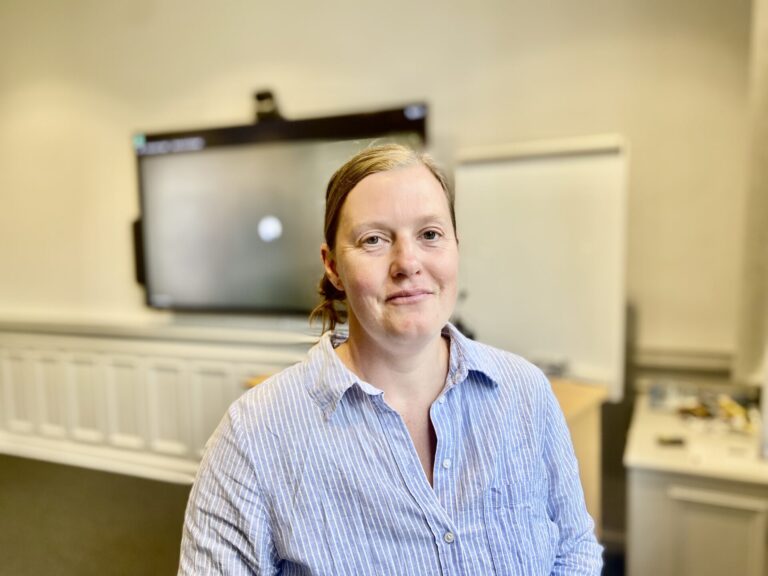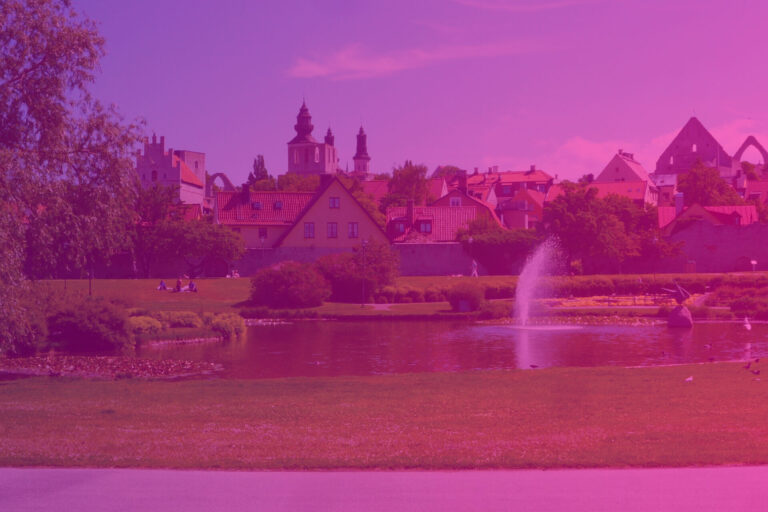What started out as a sideline career for the founders Fredrik Löfgren and Tomas Bendz, found its footing in virtual reality meeting points and made its’ landmark in the metaverse. ‘Around the Corner’ hones the potential of the immersive virtual space and develops a whole new world of digital tools, operational possibilities, and human interaction.
The year is 2020 and the Covid-19 pandemic has heavily restricted social life all around the globe. Amid lockdowns, people searched for new ways to stay connected, and as a result technological advances and innovations flourished. Digital meetings became the norm but the rigidity of Teams, Zoom or Skype, which neatly framed the participants from the shoulders up, left us wanting.
Enter the dynamic duo, commercial strategy specialist Tomas Bendz and AI & Robotics expert Fredrik Löfgren.
– Our founder story is unique in that we have vastly different backgrounds, but cutting-edge expertise within our respective fields, says Tomas. We don’t always agree, but there’s always a basic respect for each other’s specific skills. It’s as they say, ‘Strength lies in differences, not in similarities.’
The success story is written in the interaction between the born economist and the wizard engineer, and the interplay between technological proficiency and commercial excellence. With the combined competences the first major VR conference was organized – hosting over 450 invited participants from the consulting company Kvadrat Sweden. This marked the start for the new company Around the Corner.
The conference received great media coverage and led to inquiries from companies such as Ericsson, Saab, and IKEA. During 2020-21, the newly formed company’s services was in high demand by small and large businesses alike, featuring many different VR environments. At the turn of last year, Around the Corner had conducted more than 70 virtual reality conferences.
Around this time, a series of events made the company turn the corner.
– When Facebook changed its name to Meta and made metaverse an acknowledged concept, we found new applications for people to enter 3D environments from a professional perspective, says Fredrik. We made a name for ourselves in VR but have now transformed into a metaverse company.
This, in conjunction with hybrid offices and a surge in longed-for physical meetings made the company change direction. The pivot meant shifting their focus to Industrial applications, Visualizations, and Sales.
One notable project during 2022 was the collaboration with Sweco that explored how the Metaverse could add value to the civil engineering industry. The project delved into how digital twins could be used for additional purposes, in this instance as a means for citizen dialog.
In conclusion, the participants from Sweco summarized: “What it boils down to is this, democratizing accessibility. You took something very complex and very specific and made it accessible for the entire organization – and our customers. This, in turn, will prevent costly reconstructions by allowing us to identify miscalculations, errors or pitfalls early on.”
– In conclusion, I remember that one participant summarized; “What it boils down to is this, democratizing accessibility”, says Tomas. Meaning, we took something very complex and very specific and made it accessible for the entire organization – and their customers. This, in turn, made it possible to prevent costly reconstructions by allowing Sweco to identify miscalculations, errors or pitfalls early on.”
What started as a sideline career is now a business with many loyal customers and a turnover of SEK 3.4 million. Until now, the company has had an organic growth and marketed only through word of mouth. To meet the future needs, however, they must gear up. This is where Scaleups come in.
– Scaleups approached us very timely in 2022, says Tomas. It has been very beneficial for us to join the accelerator program for support, tips and to help us find and fix weak spots.
Around the Corner has caught the eye of prominent names in the industry and collaborations with large, global companies are in the near future. During one such meeting, the fact that their business concept is unique really dawned on the duo.
– Across the room is a person who has seen countless metaverse companies and have every reason to be a bit wary in meeting with yet another such company, Tomas says. But when we brought our business idea to the table, we got a completely different reaction. Roughly quoted; “Wow, I have never heard about anything like this. You have something that is truly unique, and you really grasp what the Metaverse is all about.” We then understood the full value of what we held in our hands.
In conclusion, a couple of quick questions for Tomas and Fredrik.
Do you need a VR headset to participate?
- No! This is a common misconception. You simply enter the Metaverse platform on your browser to look at the worlds. On our website you can get a first-hand experience. We have created an open space where you can meet us in Metaverse.
Can you join the platform on a mobile phone or tablet?
- The short answer is yes! Just like many game worlds adapt to different screen sizes, the platforms allow you to join on a variety of devices. The long answer is that it depends on the client’s requirements, what the target platform is and how advanced the environment needs to be.
What are the advantages compared to, for instance, filmed material?
- It allows multi-users and the interactions are more genuine, more alike what we would experience in a physical meeting. You have common attention to the different objects, and the possibility to focus on the person that’s speaking makes the dialogue flow easily and naturally.
What is in the pipeline right now?
In relation to this year’s Musikhjälpen, we launched an initiative together with Visual Sweden, supported by Microsoft and Mojang. It received good media coverage, much owing to Microsoft’s PR work and the engagement from Mojang’s top influencers. The next step is to roll out globally with the same organizers.
During the fall, we started a social and knowledge share network together with Swish to look at how the Metaverse can facilitate traditional payment solutions for retail businesses. The platform includes several prominent enterprises; Handelsbanken, Svensk Handel, Sweco, Microsoft, Volvo Cars, H&M, Swish, Kronans Apotek, Axfood, Ericsson, Samsung, to just name a few. The common goal; to put Sweden on the map and take a lead in the global metaverse development.
Fredrik Löfgren, winner of SVT’s Genikampen and silver medalist in the Robotics World Championship, built his first robot when he was only 7 years old. Ever since his teens, he has piloted several tech companies and is today CEO at Dyno Robotics. The company sprouted from a close connection to Linköping University and solves human problems with custom robotics and artificial intelligence, on which topics Fredrik is a much sought-after lecturer and speaker.
Tomas Bendz, commercial strategy specialist and accustomed to the atmosphere in big businesses, is well-versed in sales and revenue management. For a fair number of his 45 years, he has captained global projects and initiatives for corporations such as SAS group, Goodyear, and Media Markt. For example, he was Global Director of Sales Development at SAS, responsible for a turnover of SEK 10 billion. In 2015, Tomas founded an organization for new and emerging technologies, Time Traveller, later transformed to a consultant and keynote speaker agency. Tomas is a highly requested keynote speaker on topics such as Commercial strategy and Operational Metaverse.












